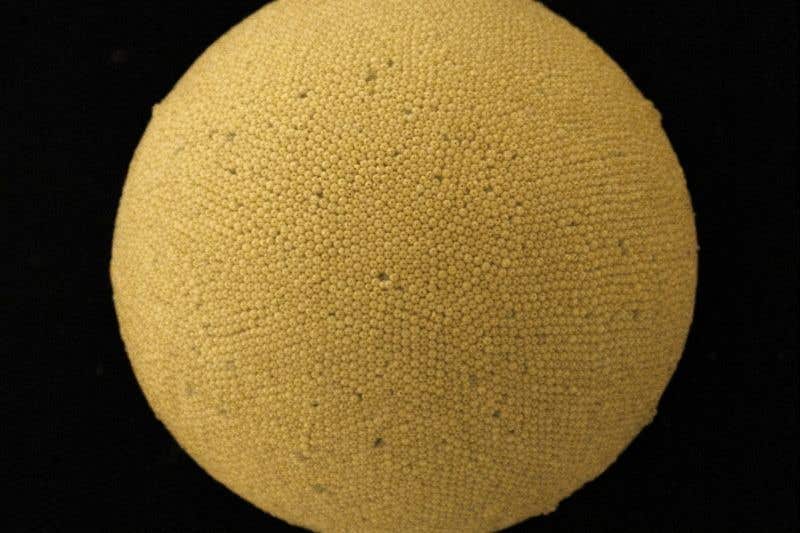Scientists link sleep apnea to faster mental decline
Sleep is more than rest. It is the foundation of how the brain repairs, organizes, and protects itself.

Low oxygen during sleep linked to vessel damage, with participants showing more white matter hyperintensities when oxygen levels fell below 90%. (CREDIT: Shutterstock)
Sleep is more than rest. It is the foundation of how the brain repairs, organizes, and protects itself. But when breathing is repeatedly interrupted during the night, that delicate process breaks down. A new study published in Neurology shows how these interruptions may quietly chip away at memory by damaging the brain’s smallest blood vessels.
The research highlights an unsettling link between nighttime oxygen loss and long-term cognitive health. The team behind the study believes this connection could help explain why older adults with breathing disorders often face faster memory decline as they age.
When breathing falters during sleep
Obstructive sleep apnea occurs when throat muscles relax too much during sleep. Airflow becomes blocked, causing repeated episodes of choking or gasping. Each interruption jolts the sleeper awake just enough to restore breathing but not enough to remember it in the morning. This cycle can repeat hundreds of times in one night.
During these events, oxygen levels in the blood fall. For many older adults, the most severe drops happen during rapid eye movement, or REM sleep. This is the stage of vivid dreams, emotional processing, and memory building. Scientists have long known that sleep apnea increases risk for heart disease, stroke, and metabolic disorders. Now, evidence points to an equally serious consequence inside the brain.
“Obstructive sleep apnea is a sleep disorder that increases with age, and low oxygen levels during sleep can harm the ability of our brain and body to function properly,” said study author Bryce A. Mander, PhD, of the University of California Irvine.
A closer look at the brain
The study involved 37 older adults with an average age of 73. None had cognitive impairment, and none were using sleep medications. Overnight sleep studies tracked breathing and oxygen levels across different sleep stages. Out of the group, 24 participants had sleep apnea.
Related Stories
- Ancient breathing practice eases sleep apnea, study finds
- People with sleep apnea are at higher risk for Parkinson's disease
Each participant also underwent detailed brain scans. Researchers focused on white matter, the tissue that connects different brain regions. On these scans, damage appears as bright spots called white matter hyperintensities. These spots are often linked to problems in blood vessels that supply the brain.
The results were striking. Lower oxygen levels during REM sleep were strongly tied to more white matter hyperintensities. This suggests that repeated nighttime oxygen dips directly damage small vessels. Researchers also measured two critical memory-related structures: the hippocampus and the entorhinal cortex.
Both were smaller and thinner in people with more vessel damage. “Taken together, our findings may partially explain how obstructive sleep apnea contributes to cognitive decline associated with aging and Alzheimer’s disease through the degeneration of brain regions that support memory consolidation during sleep,” said Mander.
Why oxygen levels matter
Blood oxygen levels normally stay above 95%. But during apnea events, they can fall below 90%. This is not just a temporary issue. According to the data, the minimum oxygen saturation during sleep and the total time spent below that 90% mark predicted how much brain damage appeared on scans.
In practical terms, every dip below safe oxygen levels adds up over time. The brain’s small vessels are especially vulnerable. Once these vessels break down, surrounding tissue is starved of nutrients and oxygen. Over years, this leads to structural changes and functional decline.
Memory under pressure
To test how these brain changes affect function, participants completed a memory task before and after sleep. Those with thinner entorhinal cortices showed worse performance the next day. This link suggests that structural damage caused by sleep apnea translates directly into memory loss.
The hippocampus and entorhinal cortex are essential for forming and retrieving memories. In Alzheimer’s disease, these are among the first regions to deteriorate. The current findings connect disrupted sleep, vessel damage, and memory decline into a single chain of events.
Sleep, aging, and brain health
As people age, both sleep quality and blood vessel health decline. This makes older adults especially vulnerable to compounded risks. Sleep apnea is estimated to affect at least one in four men and one in ten women over the age of 65. Yet many cases go undiagnosed because symptoms occur during sleep and may be mistaken for normal aging.
The consequences are far-reaching. Memory decline not only reduces independence but also raises risk for dementia. By connecting nighttime oxygen loss with vessel damage and memory decline, this research points to a modifiable risk factor for long-term brain health.
The research was small, with only 37 participants. Most were white or Asian, so the results may not apply to other populations. It also showed an association, not proof of cause. More research is needed to confirm whether treating sleep apnea can slow vessel damage and protect memory. Still, the results align with decades of evidence linking poor sleep to cognitive decline. By narrowing in on the role of oxygen loss during REM sleep, the study adds precision to what was once a vague connection.
Future directions
Researchers hope larger studies will test whether treating sleep apnea reduces white matter hyperintensities or slows thinning of the entorhinal cortex. If so, sleep interventions could become a frontline defense against memory decline in aging.
Sleep medicine already offers several treatments. Continuous positive airway pressure (CPAP) devices keep airways open with steady airflow. Newer oral appliances and positional therapies may also help. Understanding which treatments best protect brain health could reshape how doctors approach sleep apnea in older adults.
For now, the message is simple: disrupted breathing during sleep is more than a nighttime nuisance. It may be quietly reshaping the brain in ways that affect memory for years to come.
Note: The article above provided above by The Brighter Side of News.
Like these kind of feel good stories? Get The Brighter Side of News' newsletter.



